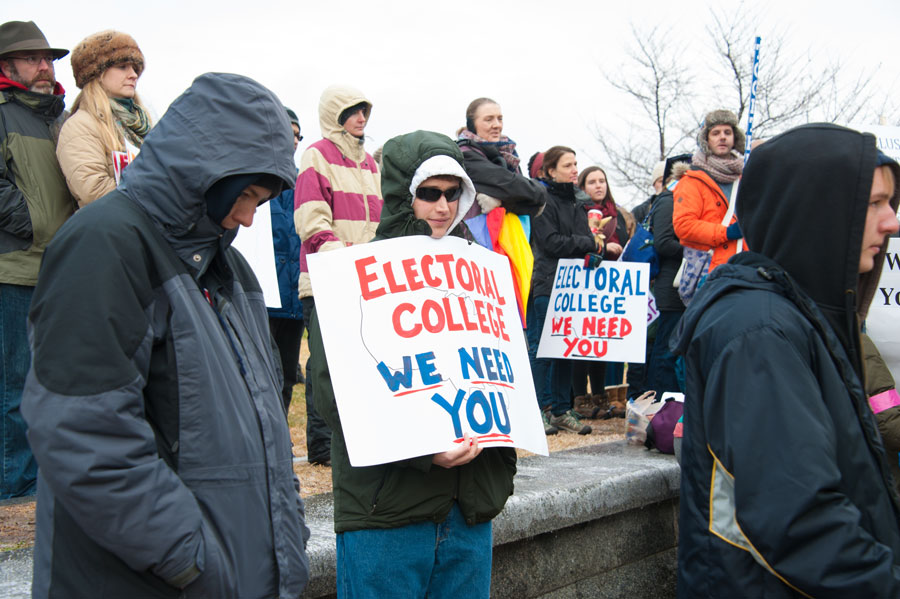
DELRAY BEACH, FL – The local paper here in South Florida, the SunSentinel, has come out with an editorial stating that the Electoral College is obsolete and that we should get rid of it. I think the members of the editorial board of the SunSentinel should go to the library to brush up on their ignorance. The cleverness of our Founding Fathers that set us up to be a representative democracy (a republic), not a pure democracy, is why they did this, the Electoral College, for a reason.
The Founding Fathers feared that placing the unlimited power to elect a president into the politically naïve hands of the people would lead to “Tyranny of the Majority”. The Electoral College helps give rural states with lower populations an equal voice in determining our laws and policies.
If the popular vote alone decided elections, the presidential candidates would rarely visit those states or consider the needs of rural residents in their policy platforms.
If we were a “pure democracy”, the highly populated states like California, New York, Illinois, and Pennsylvania would almost always control our federal government. Large urban cities today are all practically one-party cities (and states) that mainly vote for Democrats. Their lifestyle, customs, and interests are generally not the same as other cities and states around the country. Shouldn’t smaller communities who supply most of our food and energy etc. have a say in how our country is run as opposed to those citizens who live in large urban communities and states?
To get rid of the Electoral College, as some advocate, including the SunSentinel, would be an almost impossible task. First off, you’d need a Constitutional Amendment passed by 39 of the 50 states and a 2/3 vote in both Houses of Congress to get rid of the Electoral College. “It ain’t gonna happen”. Most of the smaller population states wouldn’t want to “cut off their noses to spite their faces”. They rightly conclude that they don’t want to be dominated by the states with large populations.
As stated, the United States is not a “pure democracy” but a representative democracy (a republic) whereby the citizens rule through representatives whom they elect periodically to hold them accountable. The power of the people to control their government is unlimited. There has been a desire on the part of one of our political party’s to gain control of our government at any or all costs. The Democrats, have through their efforts, were able to get some highly influential sectors of our country to work together in that goal of getting and maintaining power. A good example was this past election whereby voting rules and procedures were changed, by the Democrats, to orchestrate a outcome for the benefit of their candidate. That’s an example of a party attempting and succeeding to undermine our representative democracy.
So, in answer to the editorial in the SunSentinel, we should not and will not accede to the call to abolish the Electoral College. The Electoral College is just one example at what makes our country great, especially if our election laws are faithfully and honestly carried out. (https://www.mdconnected.ca)



Comments are closed.